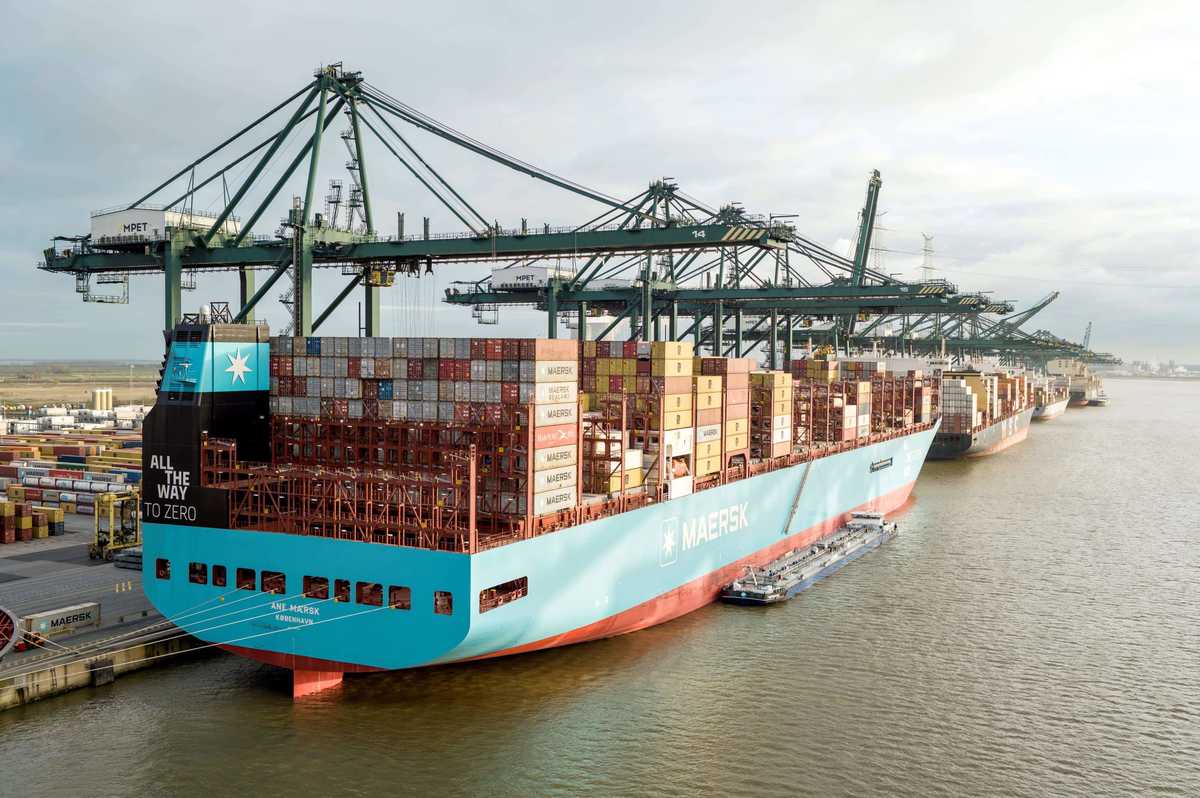The Week in Alt Fuels: Three green transition pillars
Regulatory support, bunker infrastructure readiness and sufficient supply are essential to shipping's green transition. This week's top stories covered all three of them.
 PHOTO: Bunkering of A.P.Moller-Maersk's methanol-fuelled container ship Ane Maersk. Port Authority of Antwerp-Bruges
PHOTO: Bunkering of A.P.Moller-Maersk's methanol-fuelled container ship Ane Maersk. Port Authority of Antwerp-Bruges
Regulatory support includes both global regulations from the International Maritime Organization (IMO) and regional regulations from the EU and others. It is important that global regulations align with regional ones to avoid a regulatory quagmire, argued DNV’s director of marine environment Eirik Nyhus.
Nyhus said that shipping is poised to face "a complex rest of the decade" if the IMO's mid-term measures eventually overlap with the EU’s regional shipping regulations. This is mainly because the IMO and EU regulations are likely to have different targets and requirements. The IMO has more member states with differing views, which makes it more complex, he argued.
The readiness of alternative fuel bunkering infrastructure in ports worldwide will also accelerate the uptake of low- and zero-emission fuels in international shipping. Bunkering infrastructure for LNG-fuelled ships already exists on a wider scale. Some major ports are now ready to bunker methanol, but ammonia’s bunkering infrastructure is still in its infancy.
Shell LNG completed its inaugural LNG bunkering operation in the Port of Zeebrugge, Belgium. A.P. Moller-Maersk's methanol-powered deep-sea container vessel, Ane Maersk, bunkered 4,300 mt of green methanol and 1,375 mt of pure B100 biodiesel in the Port of Antwerp-Bruges. This is the second methanol bunkering operation in the Port of Antwerp-Bruges. The first was in June 2023 when 475 mt of methanol was supplied to the tanker Stena Pro Marine.
A Japanese consortium will study ship-to-ship (STS) ammonia bunkering in US West Coast ports, including Oakland and Benicia. As part of the consortium, Japanese conglomerate Sumitomo plans to develop an end-to-end supply chain to support green and blue ammonia bunkering.
Bunker supplier KEYS Bunkering West Japan (KEYS) has taken delivery of an LNG bunkering vessel that will serve ocean-going ships calling at ports in the Kyushu-Setouchi area in Japan.
Ultimately, producers and fuel suppliers will be responsible for ensuring adequate supplies and availability of alternative fuels. Spanish energy company Repsol and US-based agribusiness firm Bunge have teamed up to increase production and availability of biofuels in Spain. The partnership will allow Bunge to continue operating its plants in the Spanish cities of Bilbao, Barcelona and Cartagena. Repsol will be able to access Bunge feedstock for biofuel production. This will cater to demand from sectors such as shipping, a Repsol spokesperson told ENGINE.
South Korea's Hyundai Merchant Marine (HMM) has partnered with Shanghai International Port Group (SIPG) on supply of methanol and LNG as marine fuels in Shanghai Port.
Dutch project developer Power2X is planning to build a 500,000 mt/year bio-methanol plant in the Niidu industrial area in Pärnu, Estonia. Bio-methanol produced at the facility can be used to decarbonise “Estonian ferry lines and shipping and other hard to decarbonize industries”, the company said.
By Konica Bhatt
Please get in touch with comments or additional info to news@engine.online






